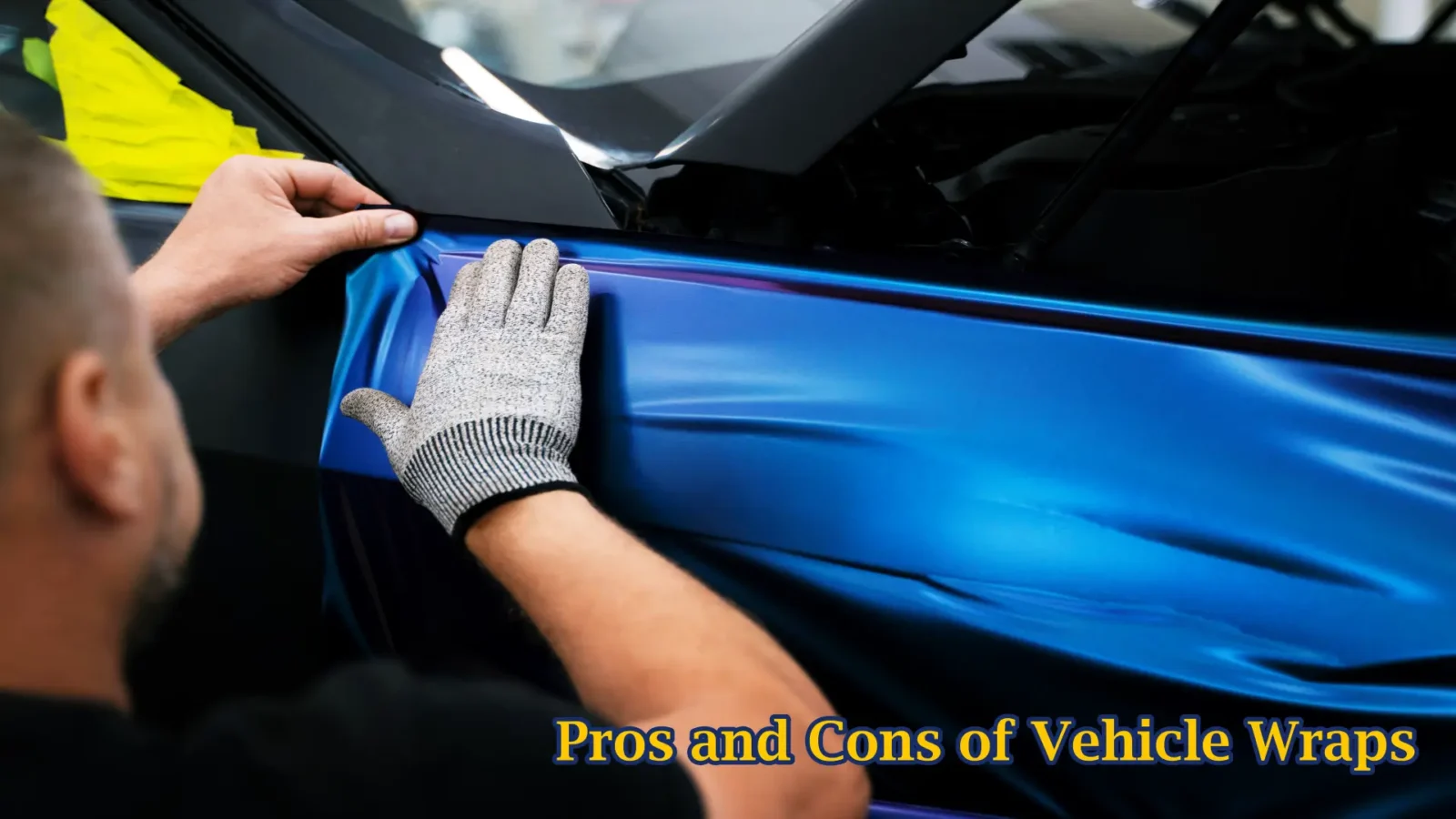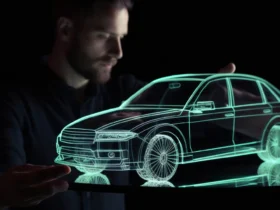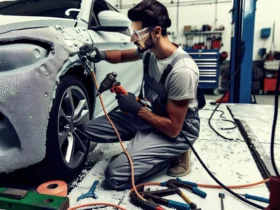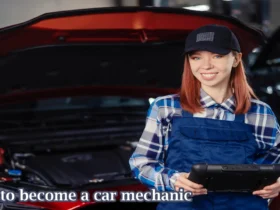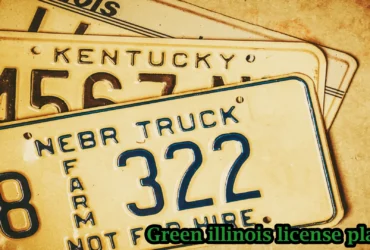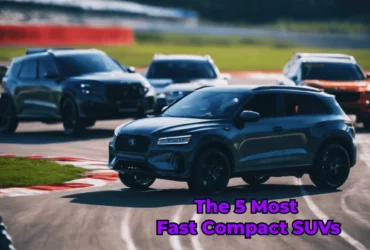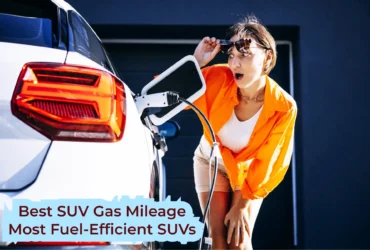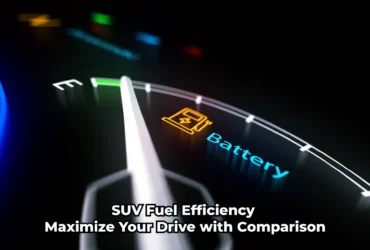Vehicle wraps have become a popular choice for individuals and businesses looking to make a statement on the road. However, before taking the plunge, it’s essential to weigh the pros and cons of vehicle wraps. Factors such as cost, longevity, and overall value should be carefully considered when determining if vehicle wraps are worth the investment. In this blog post, we will explore the key considerations, including the cost comparison between painting and wrapping a car, the durability of wraps, and the potential downsides of this automotive enhancement.
Pros and Cons of Vehicle Wraps
Vehicle wraps offer a range of benefits, but they also come with some drawbacks. Before deciding whether a vehicle wrap is worth it for your car, consider these pros and cons:
Pros:
- Customization: Vehicle wraps provide endless customization options, allowing you to create a unique look for your vehicle.
- Protection: Wraps can act as a protective layer for your car’s original paint, shielding it from minor abrasions and weather damage.
- Cost-Effective: Compared to a custom paint job, vehicle wraps are often more affordable, making it a cost-effective way to change your car’s appearance.
- Temporary: Unlike paint, wraps can be easily removed, allowing for a change in design without affecting the vehicle’s resale value.
- Advertising: For businesses, wraps serve as a mobile billboard, providing a cost-effective way to advertise products or services to a wider audience.
Cons:
- Durability: While wraps offer protection, they are susceptible to wear and tear, especially in extreme weather conditions.
- Professional Installation: Proper installation is crucial for a seamless finish, and this requires professional expertise, adding to the overall cost.
- Resale Value: Some buyers may prefer the original paint over a wrap, potentially impacting the vehicle’s resale value.
- Maintenance: Vehicle wraps require specific care to ensure longevity, including regular cleaning and avoiding certain cleaning agents that could damage the wrap.
Considering these pros and cons, it’s important to weigh the benefits against the potential drawbacks before deciding to invest in a vehicle wrap.
Factors to Consider Before Getting a Vehicle Wrap
When considering vehicle wraps, it’s essential to weigh the following factors to make an informed decision:
- Purpose: Determine the primary purpose of the wrap, whether it’s for personal style, advertising, or protective purposes. This will influence the design and material choices.
- Budget: Vehicle wraps vary in cost depending on the size of the vehicle, type of material, and intricacy of the design. Consider your budget and choose a wrap that aligns with your financial plan.
- Material Quality: Investigate the quality of materials offered by different providers to ensure longevity and durability. Quality materials may cost more initially but can save money in the long run.
- Design and Branding: If the wrap is for business purposes, think about how the design will reflect your brand. Ensure it’s eye-catching and effectively conveys your message.
- Maintenance: Consider the maintenance requirements of the wrap. Some materials are easier to clean and maintain than others, so choose one that aligns with your maintenance preferences.
By carefully considering these factors, you can decide if vehicle wraps are the right choice for your needs and make an informed investment in enhancing your vehicle’s appearance and functionality.
Is it Cheaper to Paint or Wrap a Car?
When considering whether to paint or wrap your car, cost is a primary factor to weigh. Here’s a comparison of the cost implications of painting versus wrapping a car:
Cost Comparison:
- Vehicle Wraps:
- Generally, vehicle wraps are more cost-effective than paint jobs.
- The cost of a vehicle wrap can range from $1,500 to $5,000, depending on the size of the vehicle and the complexity of the wrap design.
- Wrapping a car is less labor-intensive, which can reduce the overall cost compared to painting.
- Painting:
- A professional paint job for a car can cost anywhere from $3,000 to $10,000 or more.
- The cost varies based on the quality of paint, labor, and any bodywork preparation needed before painting.
- A high-quality paint job can be significantly more expensive than a vehicle wrap.
Considerations:
When determining which option is more cost-effective for your situation, the following factors should also be considered:
- Longevity:
- Vehicle wraps have an average lifespan of 5-7 years, while a professional paint job can last 10 years or more.
- Longevity may affect the long-term cost comparison between wraps and paint.
- Resale Value:
- A professionally painted car may retain its value better than a wrapped car when it comes to resale.
In conclusion, while the initial cost of a vehicle wrap is generally lower than that of a paint job, it’s essential to consider the long-term costs and the impact on the car’s resale value before making a decision.
Remember, the choice between painting and wrapping a car ultimately depends on your budget, desired aesthetic, and long-term plans for the vehicle.
How Long Does a Wrap Last on a Car?
Vehicle wraps are a popular choice for individuals and businesses looking to add a unique touch to their vehicles. When considering a vehicle wrap, one common question that arises is, “How long does a wrap last on a car?” Here are some important points to consider regarding the lifespan of vehicle wraps:
- On average, a high-quality vehicle wrap can last anywhere from 5 to 7 years with proper care and maintenance.
- Factors such as the quality of the wrap material, installation, and exposure to environmental elements can impact the lifespan of the wrap.
- Regular cleaning and maintenance, including using mild soaps and avoiding abrasive cleaning tools, can help prolong the lifespan of the wrap.
- For commercial vehicles that are frequently exposed to sunlight and harsh weather conditions, investing in a UV protective laminate for the wrap can significantly extend its lifespan.
Comparison Table:
| Factors Affecting Wrap Lifespan | Recommendation |
|---|---|
| Quality of wrap material | Invest in high-quality, durable wrap material |
| Installation | Ensure professional installation for longevity |
| Environmental exposure | Regularly park in covered areas to minimize exposure |
| Maintenance | Follow manufacturer’s guidelines for cleaning and care |
Understanding the factors influencing the lifespan of vehicle wraps is crucial in making an informed decision about whether they are worth the investment.
How much wrap should I buy for my car?
When it comes to wrapping your vehicle, it’s important to purchase the right amount of wrap to ensure proper coverage and avoid wastage. Here’s how to determine the amount of wrap you’ll need for your car:
- Measure your vehicle: Start by measuring the dimensions of your car, including the length, width, and height. This will give you the total surface area that needs to be covered with the wrap.
- Consider the type of wrap: The amount of wrap needed can vary depending on the type of vehicle wrap you choose. Full wraps, partial wraps, and custom wraps will each require different amounts of material.
- Add extra for contingency: It’s recommended to purchase slightly more wrap than the exact measurements to account for any errors during the installation process or in case of any future repairs.
- Use a professional installer: If you’re unsure about the amount of wrap needed, consulting with a professional vehicle wrap installer can provide valuable insights and guidance based on your specific car model.
By taking accurate measurements, considering the type of wrap, and factoring in a contingency amount, you can ensure that you purchase the right amount of vehicle wrap for your car without running short or wasting material excessively. Remember, the goal is to achieve a seamless and professional-looking result while minimizing unnecessary expenses.
Is it a Good Idea to Wrap Your Car?
When considering whether to wrap your car, it’s essential to weigh the advantages and potential drawbacks to determine if it’s a good idea. Here are some key points to consider:
Pros of Vehicle Wraps
- Protection: Vehicle wraps act as a protective layer, safeguarding your car’s original paint from minor abrasions and weather damage.
- Customization: Wraps offer endless design possibilities, allowing you to express your style or promote your business with eye-catching graphics.
- Versatility: Unlike permanent paint jobs, wraps can be easily removed if you want to change the design or revert to the original paint color.
Cons of Vehicle Wraps
- Cost: While wraps are generally more affordable than custom paint jobs, they still require a significant investment.
- Maintenance: Depending on the quality of the wrap and driving conditions, regular maintenance may be needed to ensure longevity.
- Professional Installation: For a seamless finish, professional installation is crucial, adding to the overall cost.
Ultimately, whether wrapping your car is a good idea depends on your specific needs and preferences. If you value versatility, customization, and temporary protection, vehicle wraps can be a worthwhile investment.
Remember to carefully assess your budget and long-term goals for your vehicle before making a decision.
How much does it cost to wrap a car in Charlotte NC?
When considering the cost of wrapping a car in Charlotte, NC, several factors can influence the price. The cost of vehicle wraps can vary based on the following:
- Size of the Vehicle: Larger vehicles will naturally require more material and labor, thus increasing the overall cost.
- Type of Wrap Material: The quality and type of wrap material, such as vinyl, will impact the cost. High-quality wraps may be more expensive but offer better durability.
- Complexity of the Design: If you opt for a complex and intricate design, it can increase the labor cost, thereby impacting the total expense.
- Additional Services: Services like graphic design, removal of existing wraps, or special finishes can add to the overall cost.
Comparison Table:
Here’s a simple comparison of the average cost range for wrapping different types of vehicles in Charlotte, NC:
| Vehicle Type | Average Cost Range |
|---|---|
| Compact Car | $1,500 – $3,000 |
| Sedan | $2,000 – $4,000 |
| SUV | $2,500 – $5,000 |
| Truck | $3,000 – $6,000 |
| Van | $3,500 – $7,000 |
It’s essential to obtain quotes from reputable vehicle wrap professionals in Charlotte, NC to get an accurate estimate based on your specific requirements. Keep in mind that while the initial cost of vehicle wraps may seem higher than painting, the benefits and durability make it a valuable investment.
How Long Does a Wrap Last on a Car?
When considering vehicle wraps, one crucial factor to evaluate is their longevity. Here’s what you need to know about the lifespan of vehicle wraps:
- Vinyl Quality: High-quality vinyl wraps can last up to 7 years with proper maintenance.
- Maintenance: Regularly washing the wrapped vehicle and avoiding harsh chemicals can extend its lifespan.
- Environmental Factors: Exposure to extreme weather conditions and UV radiation can affect the longevity of the wrap.
- Removal Process: The way the wrap is removed also impacts the car’s paint. A professional removal ensures minimal damage.
Comparison Table: Wrap vs. Paint Longevity
| Aspect | Vehicle Wraps | Paint |
|---|---|---|
| Lifespan | Up to 7 years | 3-5 years |
| Removal Impact | Minimal | Can damage paint |
| Cost | Varies | Higher upfront costs |
Considering these factors, vehicle wraps offer a longer lifespan compared to paint and can provide cost-effective long-term branding and protection for your vehicle. Regular maintenance and professional installation are key to maximizing the lifespan of a vehicle wrap.
Remember, the longevity of a vehicle wrap can vary based on several factors, but with proper care, it can offer durability and aesthetic appeal for years.
What is the downside of wrapping a car?
When considering vehicle wraps, it’s important to weigh the drawbacks alongside the benefits. While vehicle wraps offer various advantages, there are some potential downsides to be aware of:
- Durability: While high-quality vehicle wraps can last for several years, they are not invincible. They can be susceptible to wear and tear over time, especially in harsh weather conditions or if not properly maintained.
- Cost implications: Although vehicle wraps can be a cost-effective alternative to a new paint job, the initial cost of a professional wrap installation may still be significant. Additionally, poor-quality wraps might result in the need for early replacement, incurring further expenses.
- DIY challenges: Opting for a do-it-yourself vehicle wrap can lead to issues such as air bubbles, creases, and an uneven finish. This can detract from the overall aesthetic and durability of the wrap.
- Effect on resale value: Some potential buyers may be cautious of a vehicle with a wrap, as its condition and whether it hides any underlying damage may be unclear. This could potentially impact the resale value or marketability of the vehicle.
Considering these factors, it’s important to carefully evaluate whether a vehicle wrap is the right choice for your vehicle and circumstances.
Is Car Wrapping Cheaper Than Paint?
When considering whether to wrap your vehicle or paint it, cost is a significant factor to ponder. Let’s break down the cost comparison between vehicle wraps and paint to determine which option is more budget-friendly:
Vehicle Wraps:
- The cost of vehicle wraps can vary depending on the size of the vehicle and the type of wrap material used.
- On average, the cost of a high-quality vehicle wrap ranges from $2500 to $5000.
- Additional factors such as design complexity and installation can also impact the overall cost.
Paint:
- A professional paint job for a vehicle is typically more expensive than a wrap.
- The cost of painting a car can range from $3000 to $10000, or even more for specialty paint or custom designs.
Cost Comparison:
- Vehicle Wraps: Generally, car wrapping tends to be more cost-effective than painting, especially for complex designs or specialty finishes.
- Paint: On the other hand, traditional paint jobs can be pricier, particularly for customized or multilayered finishes.
In conclusion, when looking at the cost aspect alone, getting a car wrap is usually more economical than opting for a new paint job. However, it’s essential to consider other factors like longevity and customization before making a decision on vehicle aesthetics.

